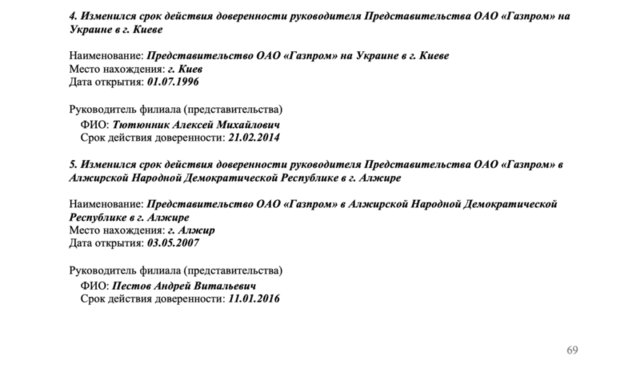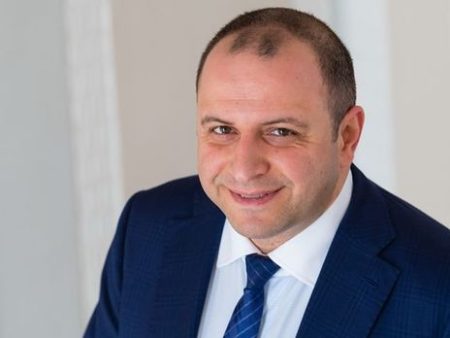
Losing 11 million customers, giving up control of Dneprogaz and Kharkivgaz, and the unexpected resignation of the RGC head are shaking up the oil and gas industry. Is everything really as straightforward as it appears at first? Source From-ua An insider at RGC provided the details of this story.
RGK. Accidents are not accidental
Oleg Nikonorov led the company for over 5 years, but as our source reveals, he was working remotely during the last year. Surprisingly, by February 24th, he had relocated to Vienna. What prompted the change of residence and the decision to step down from his position? Most likely, the working conditions were not ideal, and the employer was not pleased. This valuable personnel allegedly deprived the state of 17 billion hryvnias, which RGCs have not paid for years of using gas networks. Additionally, there were issues of gas write-offs due to oblgases on VTV, imbalances, and gas resale for the population. The former head of Ye Energia, and a certain relatively unknown “agent” named Andrei Savchenko, who is associated with the controversial ex-people’s deputy Ivan Mirny and holds multiple passports including Hungarian, Romanian and others, actively contributed to this scheme.
Now, onto the dismissal. The reason is evident, as described on facebook page of Denis Mirgorodsky. He posted detailing the corruption schemes in the regional gas companies under RGC's control, which was led by Nikonorov.
New old faces
Aleksey Tyutyunnik, who remains ingrained in the system, has taken over RGC. While working at Zhitomirgaz, he focused on personal enrichment. He established the production of gas boilers through his own company, Sinvest Group LLC, of which he is the founder. Sales of these boilers are still being conducted efficiently through controlled regional gas companies.
However, this is not even the most interesting aspect of Tyutyunnik’s background. According to our source, Nikonorov and Tyutyunnik were more than friends, and the latter built his career in Ukraine. Before that, he was employed at Gazprom, and from 2013 to 2014, he led the Gazprom representative office in Ukraine, as evidenced by published quarterly reports on the Corporate Information Disclosure Center website. This raises questions about the citizenship of the new leader and his connections to the rival.
RGK. Carte blanche
It turns out that Tyutyunnik’s predecessor has an impeccable reputation. Therefore, they have high expectations for him in Vienna, as they anticipate the company's restart in the near future. The proposed strategy is centered around a “change on the ground”.
The pilot project, as we were informed, will be Kyivoblgaz, the largest and most controversial enterprise. Additionally, due to its location, the clients of this enterprise include the most prominent political figures in the country. Thus, Tyutyunnik’s plan is simple – to clearly exhibit to the authorities the “reformation of the industry”, while reassuring the public. Furthermore, to fulfill his own ambitions, Tyutyunnik's long-standing desire to have his team in the capital region, and then receiving full authorization from the leadership, has come to fruition. Therefore, it will commence with a change of government, which has been a source of complaint within society for a considerable time.
What is the “face of the enterprise” worth, the eternal (almost a year) acting chairman of the board – Pisanko, who is already alarming and suggests thoughts of unsuitability. It doesn’t work with a career, instead, as was repeatedly written in the media, with his subordinate Mozol, who everywhere after a glass boasts of “personal contact” with Vienna, they succeeded in something else: in the shadow activities of the enterprise.
The first and, probably, the main reason is that the current leadership of Kyivoblgaz vilifies RGC, which is now under attack without this. The second is that in the “epoch of great gas changes” managers with a “clean” reputation are needed. Tabak understands that Dneprogaz and Kharkivgaz will not end, and with the advent of the Naftogaz board, the current management will not be able to hold on and the enterprise will be handed over.
So, as our source says, the “new faces” are already being approved by the oligarch, and given the range of top management in Ukraine, the decision has actually been made.
The team will be headed by Dmitry Novitsky, who once worked in Kyivoblgaz as deputy chairman of the board for gas supply and metering, and until recently headed Kharkivgaz, now, for obvious reasons, unemployed. Pavel Tyndik, recently director of Kharkivgaz sales, will be responsible for gas accounting. Other positions will also be occupied by those close to the RGC: Vadim Lobach, the director for capital construction, and Ivan Usenko, the security service.
How will this story end? RGC will be able to outwit the state and continue to put public funds into private pockets, or will Neftegaz “deoligarchize” the remnants of private regional gas companies in Ukraine? If under the chairmanship of Yuriy Vitrenko this seemed something impossible, then with the advent of Alexei Chernyshev, the process has significantly intensified. Vienna understands that Kharkivgaz and Dneprogaz will not end, so they are trying to act.
It seems that top management does not believe in the success of employers, therefore, as practice shows, they actively cooperate or run away, like Nikonorov, from a sinking ship. Naftogaz successfully destroys the monopoly from within the RGC, law enforcement officers are shocked by the scale of the theft of public funds and the massive deception of citizens. It turns out that for the country’s leadership to bring the nationalization of critical infrastructure enterprises to the end is already a matter of honor, as well as to bring all the above-mentioned persons to justice.
Alexey Andrushchenko, translation Skeleton.Info



